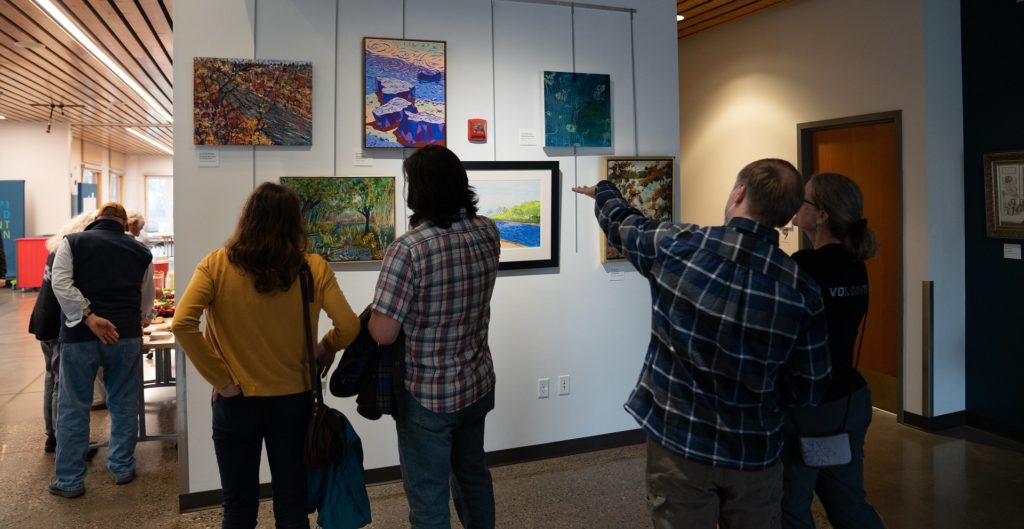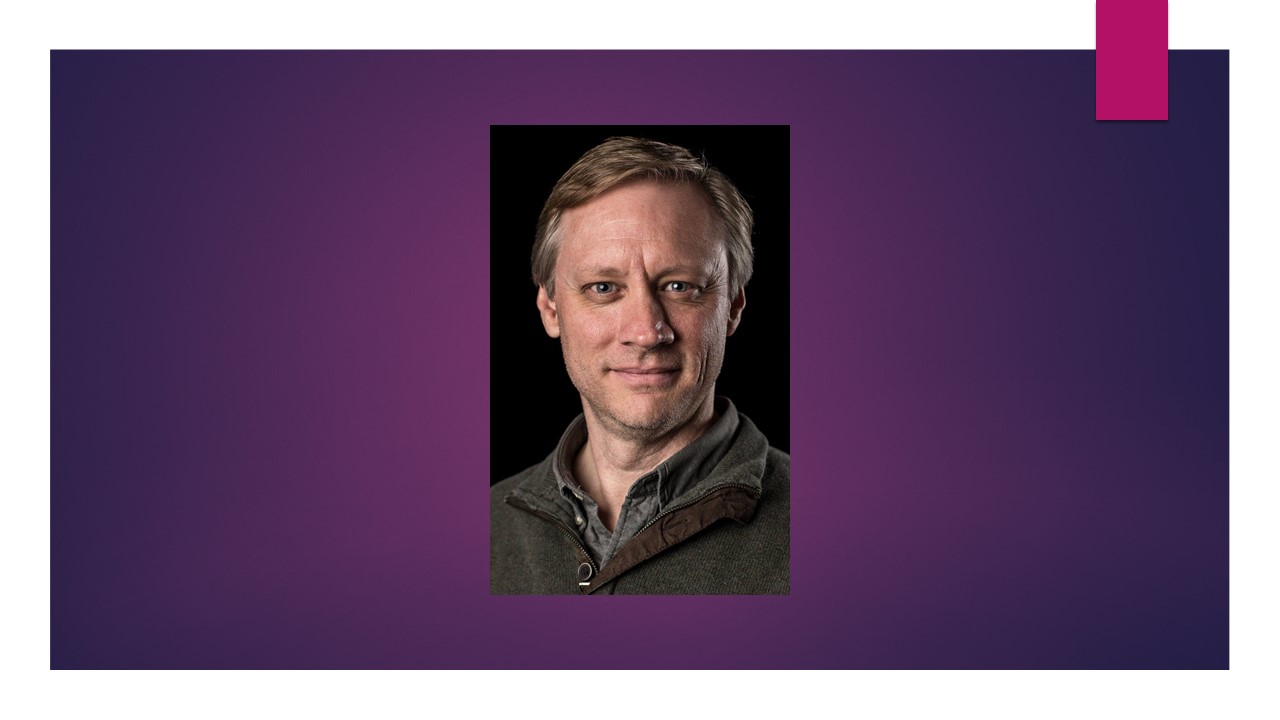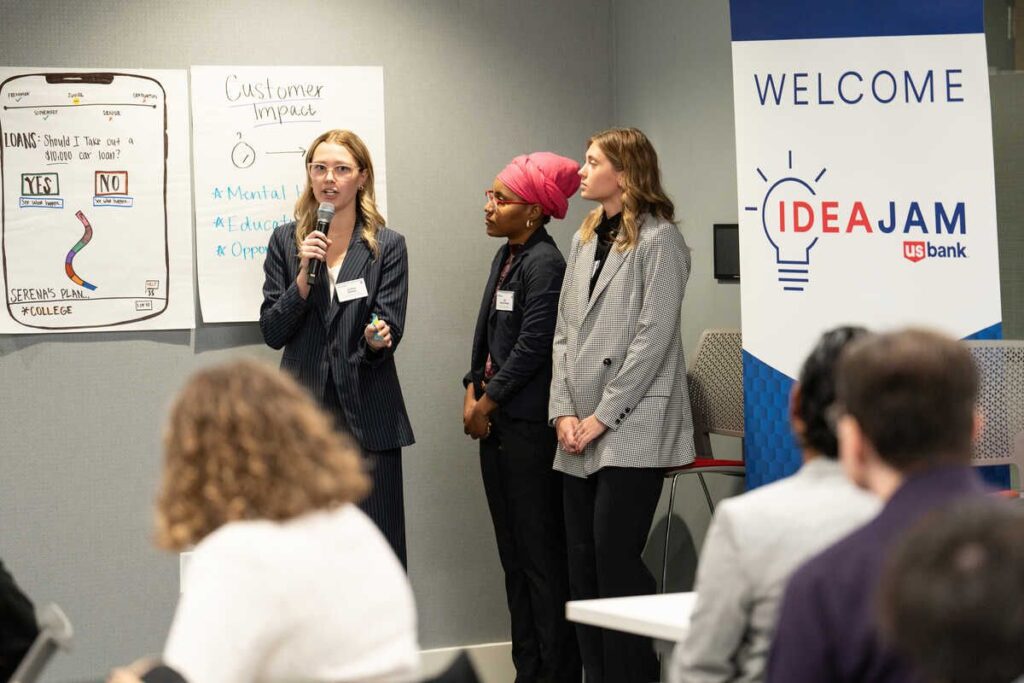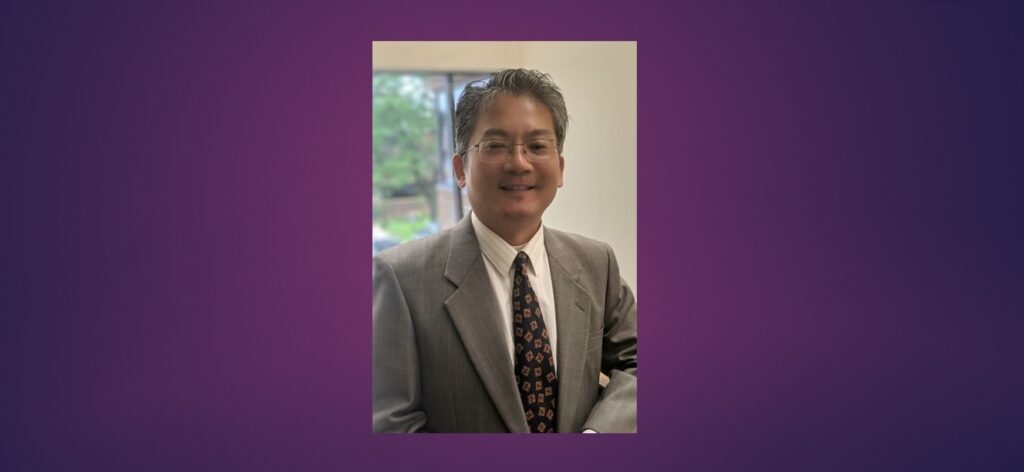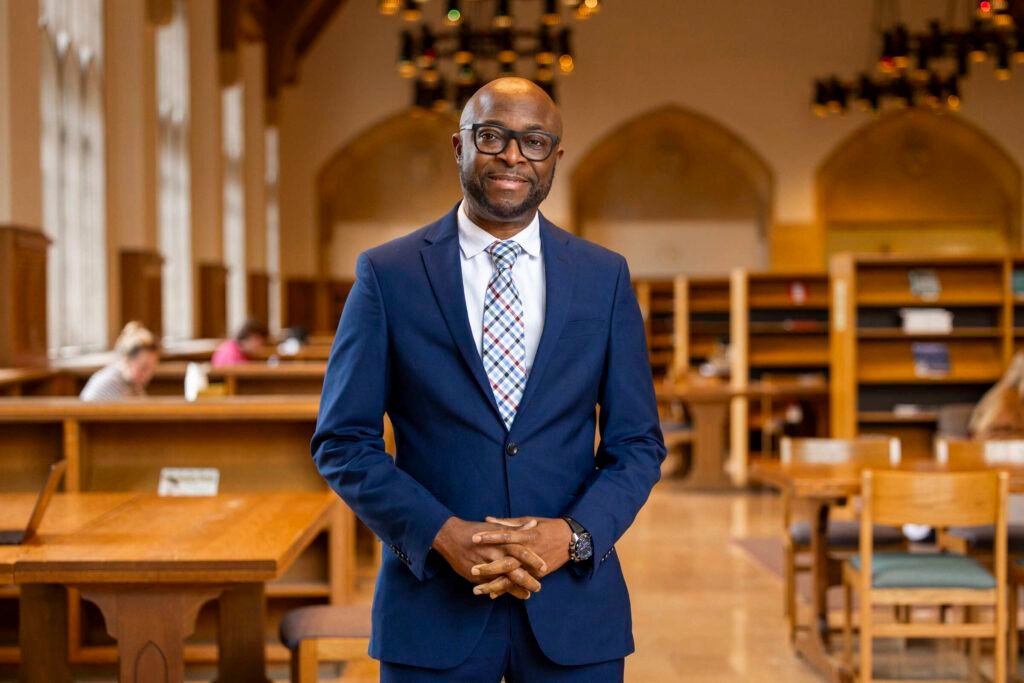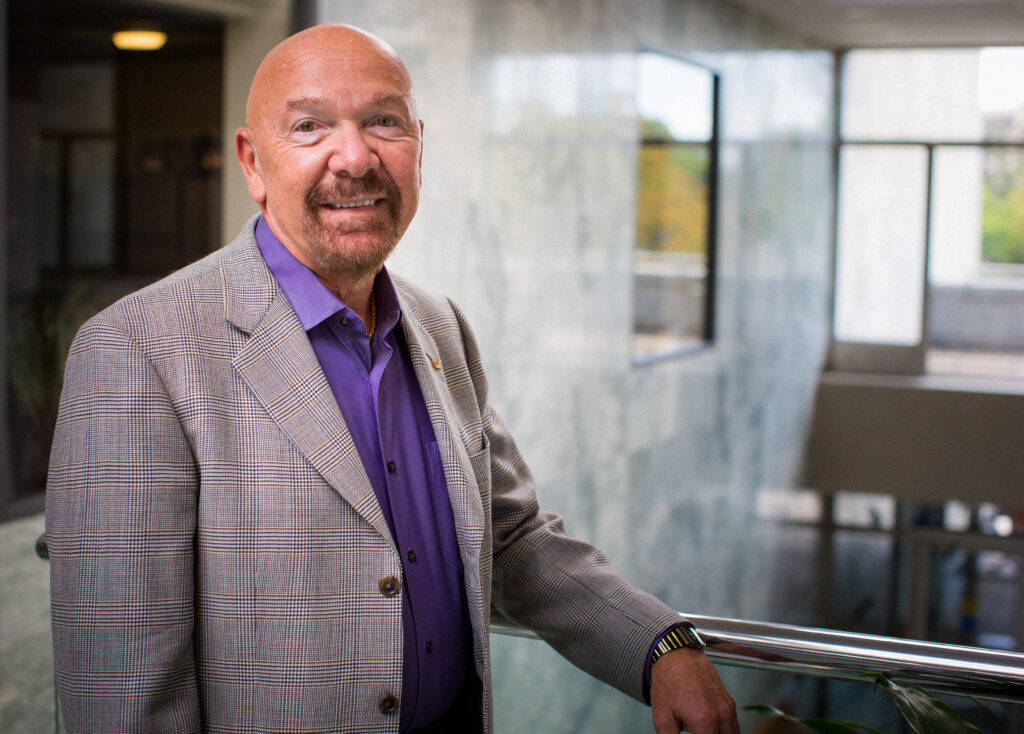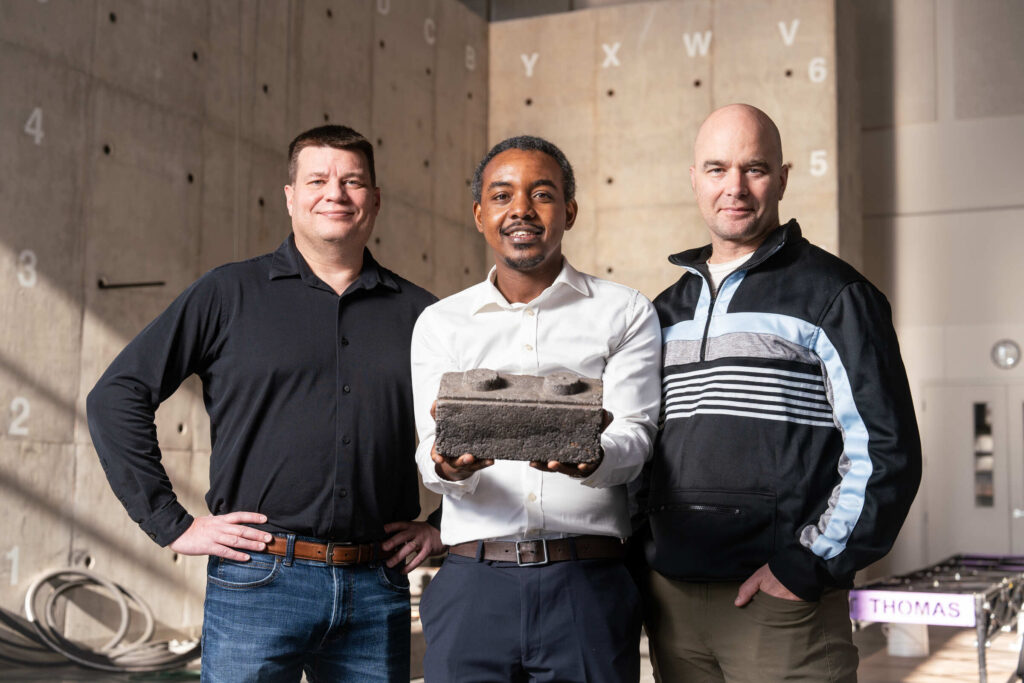Students in Mike Klein’s Leadership for Social Justice course presented to the Metropolitan Council in December on their consultation about best practices in community engagement. Students identified best practices in community engagement, created a historical and community profile of the neighborhood proximal to the Metro Plant, collected stories from neighboring communities, and synthesized their work into recommendations for sustained community engagement initiatives.
Students gave an online presentation of their work attended by 45 employees of the Metropolitan Council. In addition to specific recommendations, the overall takeaway was that transactional and one-size-fits-all approaches to engagement do not work. Rather, effective outreach and engagement reckons with historical and ongoing harm, acknowledges power dynamics, meets the community where they are, considers community demographics, uses multiple, culturally relevant approaches, and seeks to build ongoing relationships that are beneficial to the organization and the community.
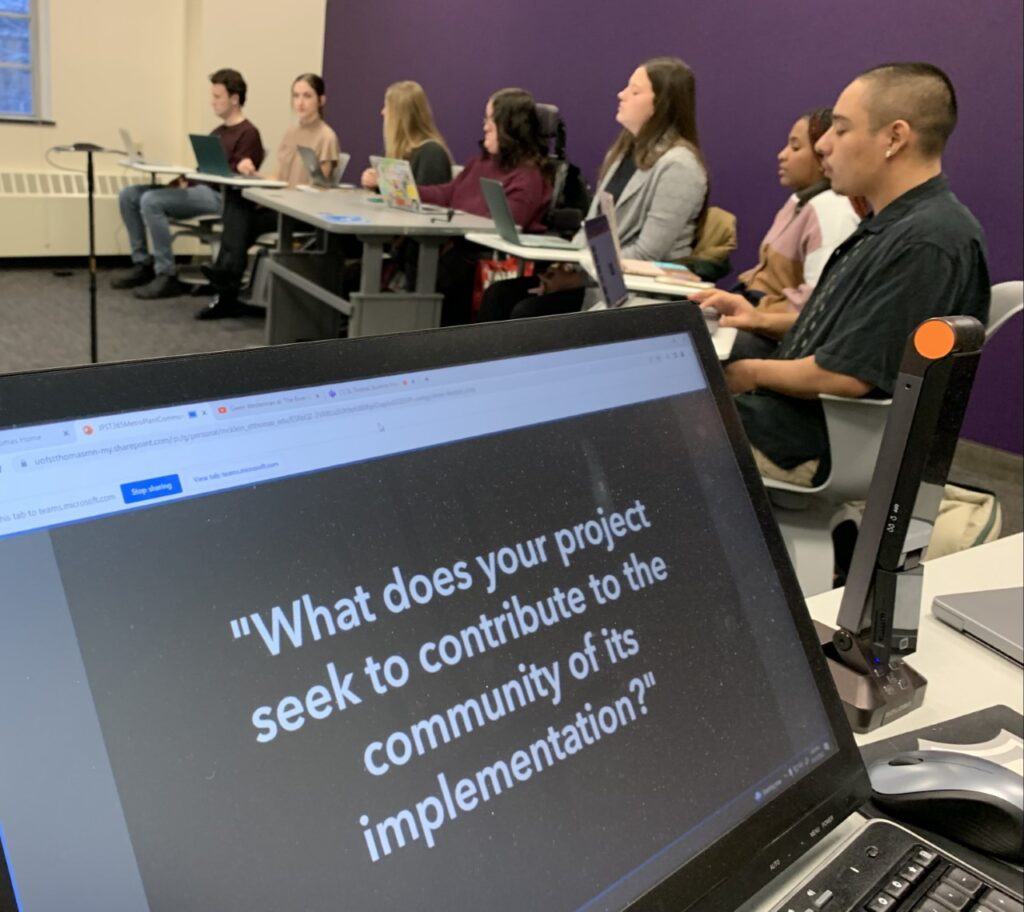
“The Metropolitan Council has had a long-standing, successful with the Sustainable Communities Partnership at the University of St. Thomas for many years. Projects benefit students because they are applied to real-life challenges, but projects also benefit our region because they increase capacity and innovation in our important policy and technical resources work,” Metropolitan Council Community Development Planning Analyst Eric Wojchik said.
“The project with Professor Klein’s course was especially valuable because embedding environmental justice principles within a large, multifaceted organization can be slow, messy, and fraught,” Wojchik added. “Working with this course helped our organization see the benefits of embedding environmental justice principles within our work because students came to the issue with fresh insight, poise, conviction, and urgency. Their recommendations resonated with our leadership because of the scholarship and nuance in their approach. We truly believe that this project helped us move the needle and demonstrate the need for organizational change.”
This consultation is part of a series of collaborations between the Metropolitan Council and the University of St. Thomas’ Sustainable Communities Partnership directed by Maria Dahmus. This partnership allows students to apply their studies and research to real-world challenges and projects. The foundational research done by St. Thomas undergraduate students provides valuable insights that inform and elevate the work of the Metropolitan Council.
Related Content

